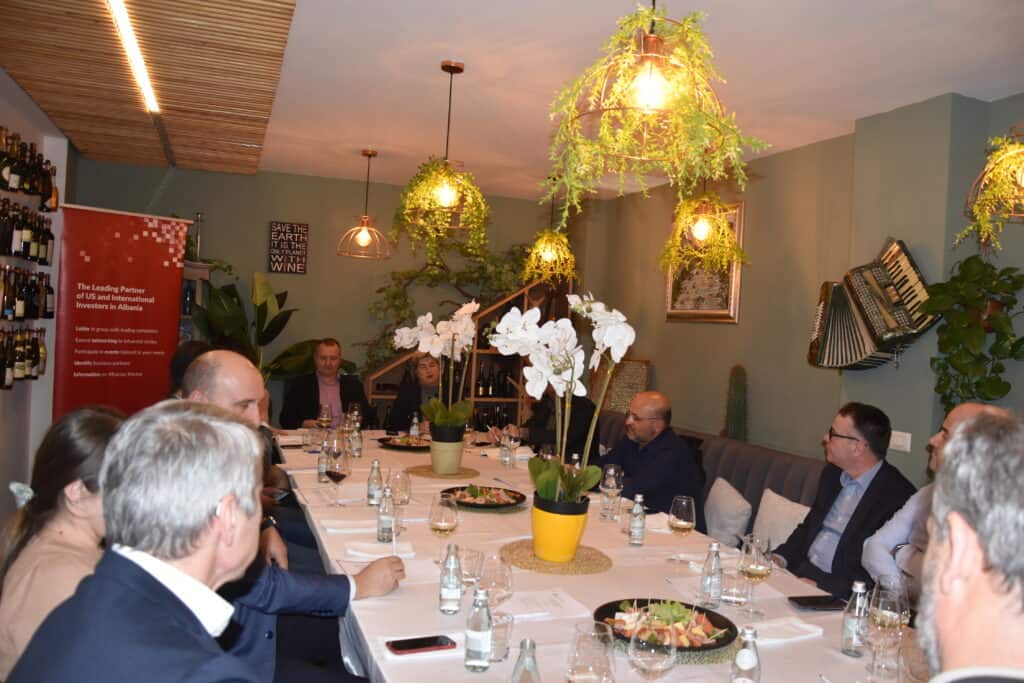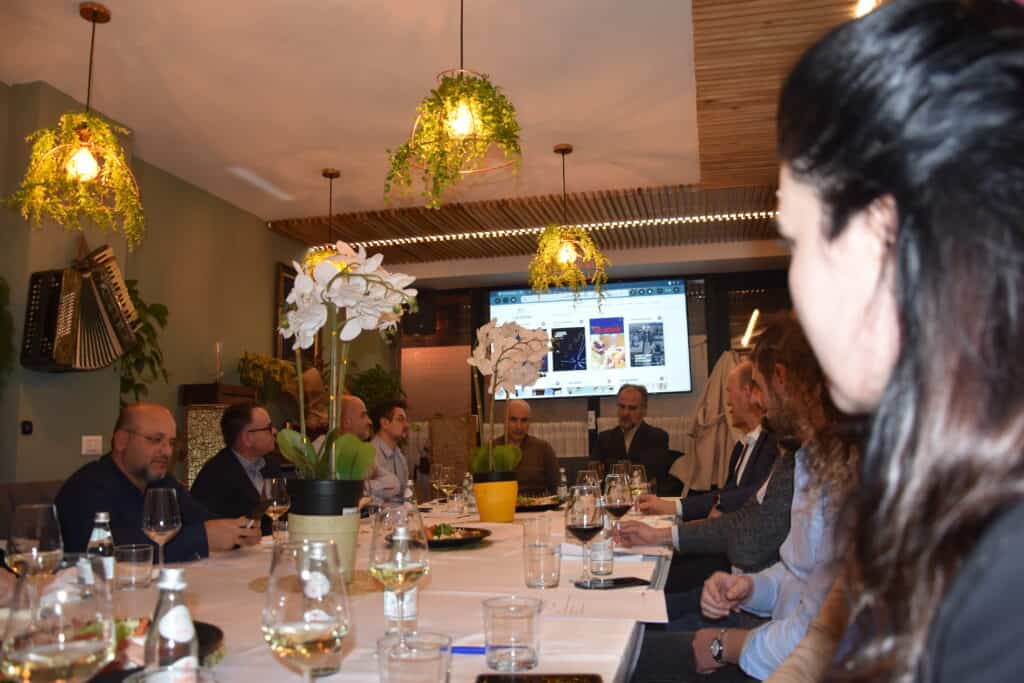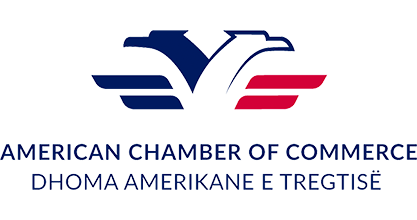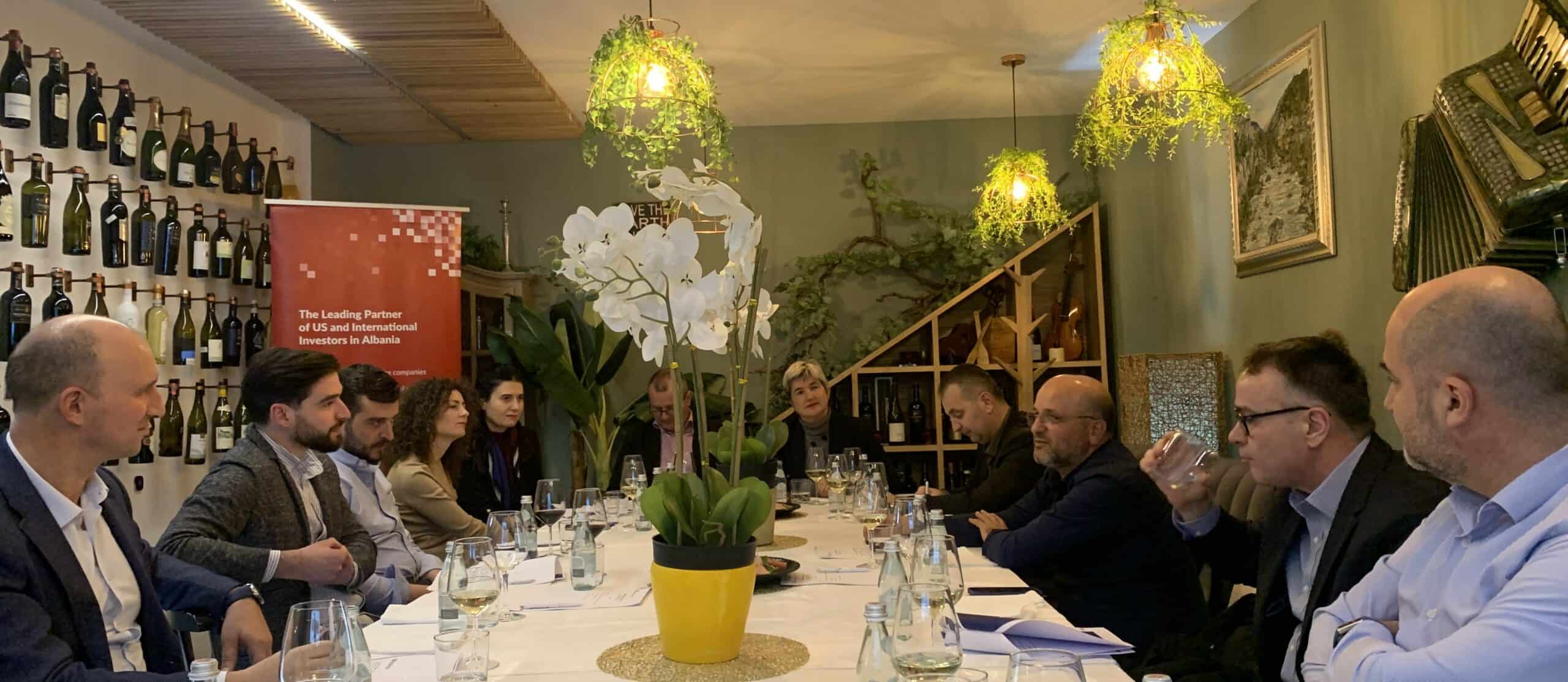AmCham Albania’s Digital Business Committee met to discuss the challenges faced last year and the opportunities 2023 offers. The meeting put the spotlight on the role the committee can play in addressing key issues set in AmCham’s Investment Agenda, the chamber’s vision for the future. The committee meeting also discussed how to provide members with training sessions and information that will help them meet current challenges.
AmCham Executive Director Neritan Mullaj spoke about the Digital Business Committee’s role and the need to set all elements of its work in an annual plan, helping set the entire chamber’s work plan in the process. One of AmCham Albania’s recent commitments involves the implementation of a Ministry of Youth program, which will offer businesses the opportunity to develop their staff capacities through training and education, with the program covering up to 50 percent of the training costs.
Linda Shomo used the after-work meeting to lead an open conversation among the experts present on the best ways to build an agenda for the committee so that it can convey valuable services to AmCham members. Ms. Shomo was of the opinion that there are two fundamental pillars on which the work should be based: training of human resources and the development of a workforce capable of facing the challenges of the sector as well as cyber security.
Committee members discussed ideas for developing seminars and training sessions, using their own capacities to share experience with other AmCham members. The committee should also rely on external expertise by inviting key speakers from well-known companies in the technology field who can bring added value with their experience, according to the discussion.
Finding ways to work with the university systems to promote the development of technological knowledge in schools was another idea raised during the meeting. The trend of the emigration of the labor force, and more specifically the loss of IT professionals, is another issue that requires the attention of the committee, whose members say they are all affected by the phenomenon. On this point, cooperation with the Labor Committee, which focuses on the training of the labor force, becomes valuable.
The other key issue: Cyber attacks, the biggest threat to the sector, are very current and have hit not only government institutions but also have been attempted on private ones, including banks. That makes it necessary for the committee to work to familiarize and guide members on the ways and protocols their businesses must use to face these digital security threats. Training in the field of cyber security can be provided by the committee members themselves, but also by external specialists with experience in the field.
Legislation that facilitates and develops electronic commerce, governing digital signatures and other technological developments, continues to be in the committee’s interest spectrum, and it will engage in lobbying processes through its experts to forward valuable comments on new laws affecting the sector.
Speaking about the committee’s important role, Mr. Mullaj reminded the members that AmCham has taken the first step through organizing its major Smart City event and now aims to use that momentum to consolidate its presence in the field, relying on the work of the Digital Business Committee.





